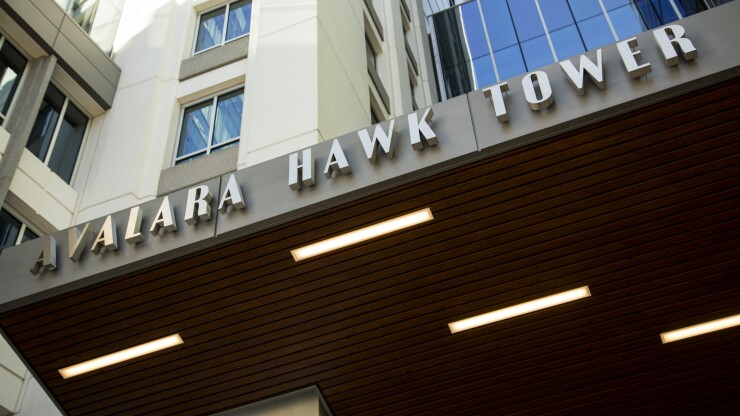Businesses are likely to see more sales tax audits in 2024 as a result of changes happening across the states, according to a new report.
The
At the same time, e-invoicing mandates are expanding around the world, and infrastructure is already being developed in the U.S. for early adopter companies.
After years of new economic nexus rules in response to the Supreme Court's 2018 decision in the case of South Dakota v. Wayfair, 2024 could bring far more simplification to economic nexus laws in states. The Streamlined Sales and Use Tax Governing Board is encouraging states to eliminate their transaction thresholds, so businesses would need to track only total sales as opposed to total sales and total transactions for economic nexus.
The report predicts more sales tax audits could be coming from the states as well as the federal government. The Inflation Reduction Act of 2022 provided approximately $80 billion in additional IRS funding over the next 10 years (although that funding was reduced by about $20 billion last year as part of a deal to avert a default on the debt and Republicans want to accelerate those cuts this year) with more than $45 billion earmarked for enforcement. Some effects of those funds could trickle down to states, Avalara predicts.
"If the IRS requires a taxpayer to amend a federal income tax return, for instance, the taxpayer may need to amend their state income tax return as well; so, although the enforcement money doesn't go directly to states, states could benefit," said the report. "The IRS will also continue to collaborate with state tax administrators and software and tax professionals to increase security measures and protect against identity theft. Businesses should bear this enhanced scrutiny in mind when grappling with compliance."

Last November, the IRS once again postponed the lowered $600 Form 1099-K reporting threshold from the American Rescue Plan Act for third-party settlement organizations for calendar year 2023. However, the IRS still plans to lower the reporting threshold from the current level of $20,000 through a phased-in approach, starting with a threshold of $5,000 for tax year 2024, to eventually reach the $600 limit. Some lawmakers in Congress are challenging the IRS's authority to do that.
Economic pressures are forcing many states to find ways to make up for revenue shortfalls, although many states and cities that were worried about tax revenue last year were pleasantly surprised thanks to the improving economy. Some states are now using technology to streamline sales and use tax compliance.
"Tax policy continues to evolve rapidly in the U.S. as the economy shifts and state governments look to adapt rules to keep pace with the changes technology is bringing to commerce," said Scott Peterson, vice president of U.S. tax policy at Avalara, in a statement. "Because state budgets aren't experiencing the same windfalls as they were in the immediate impacts of the pandemic, legislatures will encourage an increase in audits to make up for any lost revenue. Businesses and consumers should all prepare for an uptick in audits in 2024."
As omnichannel commerce grows this year, retailers should prepare for greater complexity when it comes to triggering more sales tax nexus thresholds and associated compliance requirements, including new tax rates and rules, tax returns, and exemption considerations, Avalara warns.
Electronic invoicing can help streamline tax reporting, increase tax collections, and reduce the tax gap between expected and actual tax collections. But while over 60 countries currently have e-invoicing mandates (or soon will), e-invoicing is a foreign concept for most state and local governments in the U.S. However, U.S. businesses are adopting e-invoicing to streamline their processes. The Business Payments Coalition began an
"It's important to remember that countries that don't have mandatory e-invoicing requirements now will have them in the future," said Alex Baulf, vice president of e-invoicing at Avalara, in a statement. "For businesses looking to get ahead of the curve, it's essential to understand current and forthcoming business impacts of country-specific e-invoicing mandates, and to plan for technology adoption to comply with new invoicing regimes and benefit from new efficiencies inherent in this digital transformation."





